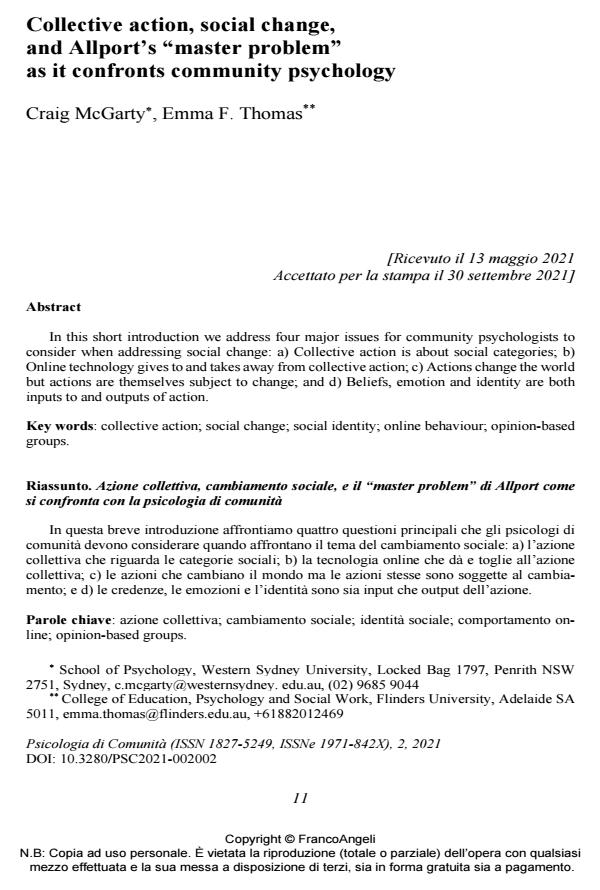Collective action, social change, and Allport’s "master problem" as it confronts community psychology
Titolo Rivista PSICOLOGIA DI COMUNITA’
Autori/Curatori Craig McGarty, Emma F. Thomas
Anno di pubblicazione 2021 Fascicolo 2021/2
Lingua Inglese Numero pagine 7 P. 11-17 Dimensione file 148 KB
DOI 10.3280/PSC2021-002002
Il DOI è il codice a barre della proprietà intellettuale: per saperne di più
clicca qui
Qui sotto puoi vedere in anteprima la prima pagina di questo articolo.
Se questo articolo ti interessa, lo puoi acquistare (e scaricare in formato pdf) seguendo le facili indicazioni per acquistare il download credit. Acquista Download Credits per scaricare questo Articolo in formato PDF

FrancoAngeli è membro della Publishers International Linking Association, Inc (PILA)associazione indipendente e non profit per facilitare (attraverso i servizi tecnologici implementati da CrossRef.org) l’accesso degli studiosi ai contenuti digitali nelle pubblicazioni professionali e scientifiche
In this short introduction we address four major issues for community psychologists to consider when addressing social change: a) Collective action is about social categories; b) Online technology gives to and takes away from collective action; c) Actions change the world but actions are themselves subject to change; and d) Beliefs, emotion and identity are both in-puts to and outputs of action.
In questa breve introduzione affrontiamo quattro questioni principali che gli psicologi di comunità devono considerare quando affrontano il tema del cambiamento sociale: a) l’azione collettiva che riguarda le categorie sociali; b) la tecnologia online che dà e toglie all’azione col-lettiva; c) le azioni che cambiano il mondo ma le azioni stesse sono soggette al cambiamento; e d) le credenze, le emozioni e l’identità sono sia input che output dell’azione.
Parole chiave:azione collettiva; cambiamento sociale; identità sociale; comportamento online; opinion-based groups.
Craig McGarty, Emma F. Thomas, Collective action, social change, and Allport’s "master problem" as it confronts community psychology in "PSICOLOGIA DI COMUNITA’" 2/2021, pp 11-17, DOI: 10.3280/PSC2021-002002